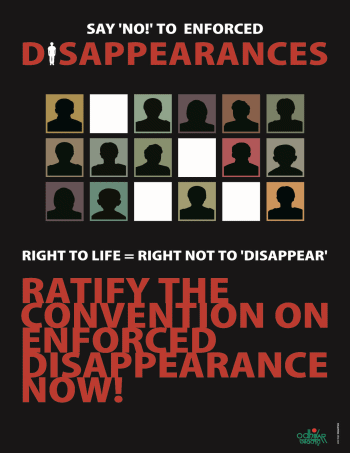5 May 2016 10:42 am
After talking with its new Chairperson and Vice-Chairperson, FORUM-ASIA met with the Secretary of Odhikar, Adilur Rahman Khan. Adilur has been re-elected for the second time in a row to represent its organisation in the Executive Committee of FORUM-ASIA.
Adilur is a practicing lawyer of the Supreme Court of Bangladesh, as well as a prominent human rights defender. He is a founding member and Secretary of Odhikar, a leading human rights organisation in Bangladesh established in 1994. Adilur and Odhikar have faced numerous challenges and impediments because of their human rights work, and their story has been featured in FORUM-ASIA 25th Anniversary Publication ‘Our Struggles for Human Rights – 25 Years of FORUM-ASIA’.
We interviewed Adilur in Bangkok, Thailand to talk about his involvement with the human rights movement and what keeps him motivated to continue his struggle for human rights.
How did you become involved with the human rights movement? And how did you become involved with FORUM-ASIA?
I became involved through the left-wing student movement. It was in 1977, I just finished school and entered in college. At the time there was a military Government in Bangladesh, and we had to go underground. We started to be involved because we wanted to change the society, move our country towards a more kind of humane and pro-people direction.
In 1991, when FORUM-ASIA was founded in Manila, I was in Strasbourg for a human rights programme. With me in Strasbourg there were some friends from the Philippines, who informed about this new initiative. Then in 1992, FORUM-ASIA organised its first fact-finding documentation training. My involvement with FORUM-ASIA started when I attend this training, 24 years ago.
What motivated you to become involved in this field?
Human rights movements, no matter where they are from, are there to bring about change, to bring justice, to oppose authoritarian repressive systems and to campaign for people’s rights. That’s why I became involved. Also, it was important at the time to express solidarity to the people’s struggles in Bangladesh, but also in other parts of the world, like Palestine, South Africa and Nicaragua. These are the kind of struggles which in our young early days we were involved in and getting inspiration from.
I’ve to say, our struggle it’s still on. We haven’t achieved much yet. But we see, read and learn about the heroes and heroines who fought for the rights and scarified their lives. That motivates you, and inspires you to do something for the people, the communities and human beings.
What do you experience as the main challenges as someone working on human rights?
States are becoming more authoritarians and at the same time the people’s movement has moved towards aNGO-nization. Some of them have also become right-wing. In the meantime, more violations are taking place internationally, with absence or selective use of rule of law, drones attacks and proliferation of surveillance technologies. Also you see that in a post 9/11 scenario, repressive laws are enacted to suppress people’s movements and rights, from self-determination to land and environmental rights. As a consequence, people are facing more repression and more repressive countries are ganging up together. We don’t see a proliferation of new people’s movements because these repressive attacks have changed the whole scenario.
The fighting people are left aside, but this won’t last long. This time can be seen as a low period, a pause period, but global history says that people win, people’s struggle wins. Maybe we are in a very difficult scenario now, but we shall overcome. And FORUM-ASIA can contribute to this, by helping human rights movements in Asia, especially in repressive countries.
How do you deal with upcoming obstacles in your work? How do you keep yourself motivated to continue?
When you are from a family who struggles for the rights of the people, which dreamt of a better Bangladesh, you also carry that torch. You have to remain with the people, even if is very risky and hard, we remain with the people in any circumstances. Without inspiration, motivation, you can’t do things. And for us, the inspiration is always the people. We can say that our struggle it’s still on, we haven’t achieved much yet. But we see, read and learn about the heroines and heroes who fought for the rights and scarified their lives. That motivates you, and inspires you to do something for the people, the communities and human beings.
If you could give a message to the new generation of people working on human rights or development, what would it be?
I would say, don’t be isolated, don’t be techno-driven. Use technology for people’s struggle, stay with the people, meet the activists, become an activist and contribute to generate more of them. Only by changing this world towards a better future, we and our future generations can survive.
Report Published on May 05, 2016 at www.forum-asia.org




